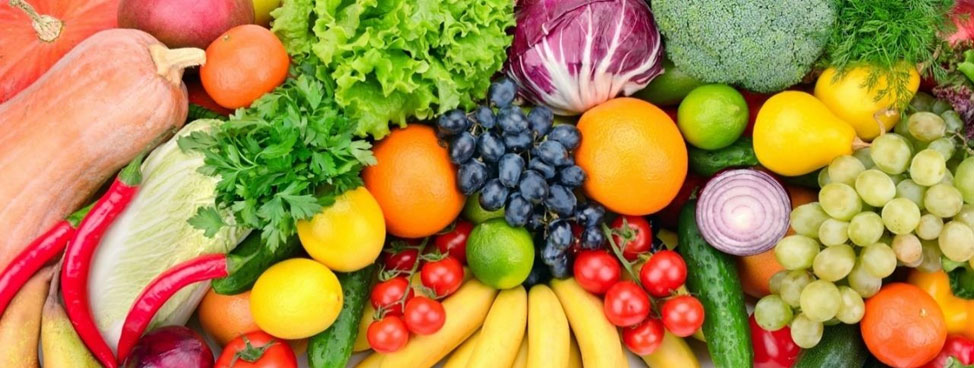Are you searching for a New Year’s resolution that is simple AND will have a profound and positive effect on your health? What if I told you that simply increasing the number of vegetable & fruit servings consumed per day can reduce your risk of death by an astounding 42%? Consumers of health information are routinely exposed to information praising the benefits of a plant-based diet. Here is some actual science that may back that up.
A plant-based diet is the way to go
Most of the food you consume should come from vegetables with some fruits mixed in. Researchers from the Department of Epidemiology and Public Health at University College London found that people who ate seven or more portions of fruits and vegetables per day had a 42% decrease in their risk of death. Consuming three to five portions reduced that risk by 29% [1]. It was also determined that eating seven or more portions of fruits and vegetables a day can reduce your risk for heart disease by an amazing 31% and your risk for death from cancer by 25% [1]. Evidence for a diet high in plant-based foods can’t get more compelling than this. Notice that there’s no mention of replacing portions of healthy animal-based foods with plant-based foods. The significance is solely placed on increasing fruits and vegetables.
Keep as near as ever you can to the first sources of supply—fruits and vegetables. —B.W. Richardson

In comparison, vegetables were found to be far more protective than fruit. For instance, eating veggies decreases your death risk by 16% per serving, whereas each portion of fruit reduces the risk by 4% [1]. Fruits are an important source of nutrients, but a possible cause for their less-spectacular effects on risk for death and disease may be related to potential blood sugar spikes. This would be a remarkable and valuable association, if true. I suspect it is. The higher, sugar-spiking glycemic loads of fruits compared with vegetables may account for these data. I believe that if more of the vegetables consumed by the study participants were low glycemic and had negligible effects on blood sugar the results would have been even more spectacular.
The vegetable/fruit ratio that I recommend on an individual basis depends on the unique physiology and individual metabolic needs of each client. I caution that excessive fruit consumption can result in ill health based on their blood sugar effects, caloric density, and potential metabolic effects such as raising triglycerides. For these and other reasons fruits are far from an unrestricted or “all you want” food source.
Instead of focusing on which unhealthy foods to eat less of, concentrate on which healthy foods to eat more of. —Author unknown

It’s important to understand that the advantages of a dietary focus on vegetables and fruits don’t result purely from the goodness of their nutrition. Benefits are also derived from the fact that, with all of that “good stuff” in the diet, there’s simply not much room for the “bad stuff.” This eating plan benefits our health because of what’s missing from it, as well as what’s good in it. With only so many calories available after eating a lot of good food, you will automatically consume less preservative-laden, refined, and processed foods. These unnatural anti-nutrients literally contaminate our bodies with toxic chemicals. Follow this eating plan and you’ll benefit from the concept of addition by subtraction.
A few final tips
- Generally speaking, above-ground vegetables can be eaten without limitation. One exception may be corn, which is a relative agricultural newcomer, very glycemic, and a genetic mismatch for humans.
- Root vegetables are nutrient-dense but limit starchy varieties like white potatoes. They can cause a blood sugar response similar to that of table sugar.
- Beware of preparation methods that overcook the vegetables (because it destroys “built in” digestive enzymes) or use significant amounts of salt, unhealthy fats, or calorically dense and/or processed dressings and sauces.
 Wayne Coolidge, Jr., M.Ed., CHES is an author, speaker, and innovative Health Promotion Scholar-Practitioner. He owns Wayne Coolidge Health Promotion, a consulting firm specializing in healthy aging, nutrition, nutritional supplementation, fat loss, fitness, and disease prevention. His expertise is designing lifestyle-optimization strategies leading to positive genetic expression, controlled cellular aging, health, and wellness. He has accumulated more than 31,000 hours of one-on-one training and personal consultation experience over a 36-year career. You can email him at wayne@healthydynamicliving.com.
Wayne Coolidge, Jr., M.Ed., CHES is an author, speaker, and innovative Health Promotion Scholar-Practitioner. He owns Wayne Coolidge Health Promotion, a consulting firm specializing in healthy aging, nutrition, nutritional supplementation, fat loss, fitness, and disease prevention. His expertise is designing lifestyle-optimization strategies leading to positive genetic expression, controlled cellular aging, health, and wellness. He has accumulated more than 31,000 hours of one-on-one training and personal consultation experience over a 36-year career. You can email him at wayne@healthydynamicliving.com.



great article it makes sense but nice to see scientific proof
Wayne,
great article as always. I will never forget the first time I was introduced to you and your presentation “Ten thousand years ago”.
Keep up the good work in educating folks what the Doctors fail to present to us. You have made a difference for so many people including my family, we are healthier and more in the know!!! Can’t wait to see your next article!!!